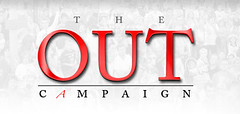As an atheist and an avid science fan, I have often been stumped by Christians who have trouble grasping the very basic tenets, or fundamentals of the Scientific Method.
Christians who buy into the "Evolution is not a fact, but a mere theory" junk are simply not bothered to educate themselves with real science, but instead immerse themselves with junk science, such as Creationism and the not-so-intelligent pseudo-science of "Intelligent Design".
In order to perhaps help clear the air a little, as well as elucidate what I regard as the essential basics of scientific jargon, I would like to illustrate some basic scientific terms that are often used by scientists to explain certain phenomena in the realm of science.
1. Hypothesis
A scientific hypothesis is an educated guess to explain a certain observable phenomenon. The main gist of any hypothetical phenomenon is that it can only be disproven, not proven, to be true.
The basic reason behind this somewhat ambiguous trait is the law of potential falsifiability: Any scientific phenomenon or observation has the possibility of being proven false.
Example: Suppose we test the effectiveness of several brands of car polish. After testing all the available brands on the market on several car prototypes, we conclude that all these brands work remarkably well in terms of stain removal and maintaining a shiny sheen.
My conclusion from this little experiment merely highlights that all the current available brands in the market do not offer anything that could make them stand out from the rest. This hypothesis, however may be disproved if, for some reason, one of the brands may work remarkably well on one of the test cars and thus make it stand out from the rest. On the other hand, I cannot take my conclusion as an absolute proof that all car polish have the same efficiency, since there may have been one brand that could have worked better in the past. There is also the possibility, however remote, that a brand could be created in future that would outperform all existing current brands.
2. Scientific Theory
Opponents of the Evolution Theory often trumpet ubiquitously that Evolution is mere theory, that the word "theory" itself somehow undermines the integrity and legitimacy of the study of Evolution itself. The truth is, however, the complete opposite of such a erroneous preposition.
The word "theory", when used in a scientific context, does not denote mere guess or simple conjuncture: A scientific theory is really the progression of a observable phenomenon from the hypothesis stage. To put it more succinctly, a scientific theory is a summarization of a hypotheisis or a set of hypothesises, all of which are validated and supported by a series of testing and subsequent empirical data which keeps track of the phenomenon.
Like the hypothesis, a scientific theory is potentially falsifiable: Until another validated scientific theory comes along to refute a current scientific theory, the current theory is considered true.
In short, the law of potential falsifiability applies.
3. Scientific Law
Contrary to the standard usage of "law", a scientific law is not a final arbitrator of scientific phenomenon.
A scientific law is a generalization of a body of observations, but does not reveal the mechanism behind these observations.
For example, the Law of Gravity can be observed, and even its rate of acceleration can be measured, but the mechanisms behind gravity cannot be explained.
The Rationale Behind Science
Most Christians and theists of the fundamentalist kind have trouble grasping the very basics of the Scientific Method because it is so divergent of the kind of ecclesiatical, one-dimensional dogmas that they have been so accustomed to.
The principle behind the Scientific Method is the cornerstone of Modern Science: Every scientific phenomenon can be potentially disproved, and the closest science have to an absolute are bodies of factual data to substantiate scientific phenomena.
That principle kind of contradicts the religious school of thought: Scriptural teachings are held to be absolute truth, regardless of the validity or the amount of evidence presented to show otherwise.
In short, Science is the application of evidence to justify certain prepositions, while Religion is the applicable of Scripture regardless of standing evidence.
Thursday, 14 June 2007
Scientific Jargon, & Why Christians Get It All Wrong
Subscribe to:
Post Comments (Atom)




5 comments:
L>T here,
because it is so divergent of the kind of ecclesiatical, one-dimensional dogmas that they have been so accustomed to.
that's it! one-dimensional But, dear beast, it is not only in science that one-dimensional thinking manifests itself, but I see it in politics, also. Why are we such a shallow society? Are we taught to be overtly emotional & not taught how to look below the surface???
I want to know.
L>T:
I was speaking about religion being one dimensional.
The thing is, religious people want absolutes in a complicated world, but things don't go in the manner which Christians think will happen.
To them, everything is a definite yes or no. No buts. Kind of like boot camp in a way.
Sorry, I meant to say religion.
but it does seem to me some peoples idea of politics is one-dimensional, also. ???
I'm thinking that being religious retards critical thinking in other areas, also.
what i'm wondering is, is it that people aren't being taught to think or do they not want to think?
Well, I can't say that about all religious folks, but most of them really don't know what they are signing up for when they participate in a particular religion, making them susceptible to any ridiculous spin that religious morons may conjure up with.
true. Even after growing up with it. It took me a while to realize intellectualy after I became an adult & really got into it, that it was only going to go so far.
Post a Comment